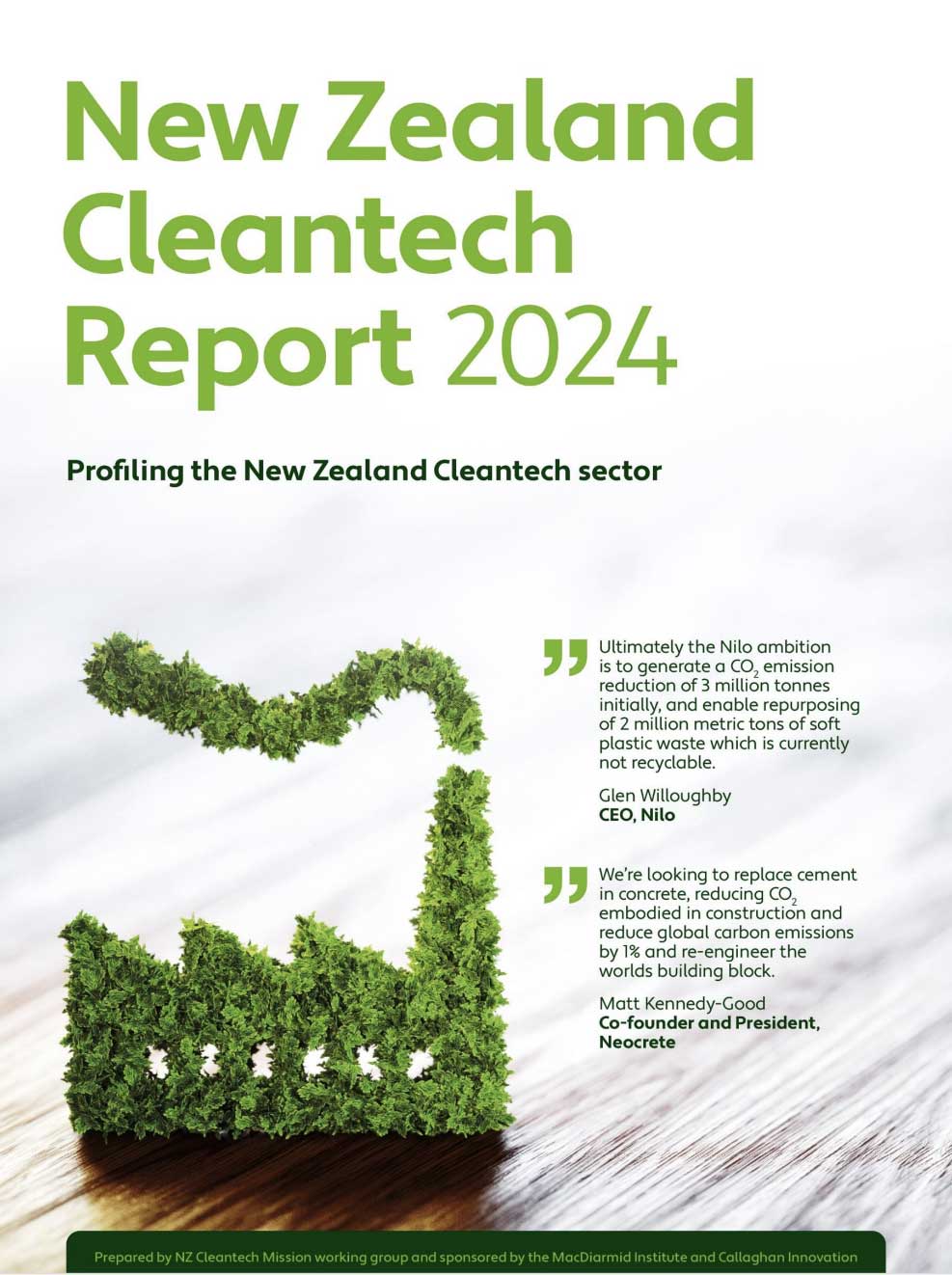

New Zealand's Cleantech Sector A Chance To Lead A New Global Innovation Agenda
30 May 2024
“Ultimately the NILO ambition is to generate a CO2 emission reduction of three million tonnes initially, and enable repurposing of two million metric tons of soft plastic waste that is currently not recyclable.” – Glen Willoughby, CEO, NILO
The Aotearoa New Zealand Cleantech Mission recently released a new report that shows that the country stands on the cusp of a transformative era in clean technology. As a comprehensive survey of 135 companies (including NILO), the report heralds the Cleantech sector as a burgeoning powerhouse with the potential to become a significant export earner for the country.
The Potential of Cleantech in New Zealand
Combined, the companies surveyed in the report have attracted at least $535 million in private investment to date. Equally impressive is just how much this has invested back into the economy – in addition to generating $291 million in revenue, the group of cleantech companies have invested $112 million in R&D expenditure, and employed more than 1,190 people.
From here, the sector has the potential for rapid growth. Revenue growth is expected to be around 29%, and between revenue and capital raises the cleantech sector can expect another $440 million to be put into it.

Click here to read the full report.
Why Does This Matter?
The compelling story of cleantech is that it’s not just about the sustainability objectives. These are obviously important and all the companies that participate in the Cleantech Mission exist to further positive social and ecological outcomes for society.
However, it’s also, simply, good business.
The International Energy Agency projects that global spending on clean energy, as nations advance their journey towards net zero, will lift from $1.8 trillion in 2023 to $4.5 trillion in the early 2030s.
To achieve those ambitions they also need technology and solutions that have not been invented yet. This is a new category for investment and business, and it’s an international one. The nations that can get an early start and develop a robust ecosystem of talent and companies – a “Silicon Valley of clean tech” will be in great demand globally for this massive opportunity.
New Zealand’s history of pioneering renewable energy initiatives in the 1950s sets a precedent for our ambitions with cleantech. The report suggests that, with strategic policy adjustments, New Zealand could reclaim its position as a world leader in this high-value sector. The nation’s scientific and engineering talent is a cornerstone for IP-rich Cleantech companies, supporting a vision for a sustainable future.
The Role of Government and Policy
As the report acknowledges, however, we do need to foster a collaborative effort between the cleantech sector and the government to maximise the potential as an export opportunity. The good news is that the government does see cleantech as an area of opportunity. The report was presented by Minister Simon Watts, Minister for Climate Change and Minister for Revenue, who spoke about the importance of technology and innovation in reaching both economic and climate ambitions.
Involving Native Wisdom
The other big advantage that New Zealand has as an emerging clean tech power is the wisdom of the MÄori, who are known globally for their progressive understanding of the sustainable use of the land.
We are enormously proud to have been used as an example of just how effective the right approach can be. As the report noted:
A collective of more than fifty MÄori whÄnau from many different HapÅ«/Iwi, called Te Hono (the collective), made the initial investment in the NILO technology as contributors, alongside a range of New Zealand and international private citizen and institutional investors.
NILO has recently partnered with IKEA and received Corporate Venture Capital investment that supports the deployment of their technology with a longer-term view to support IKEA’s global sustainability objectives.
The deployment of the technology depends on five patent families, registered in 11 countries, extensive technical know-how and an ambitious scale-up development to meet IKEA’s requirements.
As New Zealand’s Cleantech sector continues to mature, the time is ripe for enhancing support for these capital- and research-intensive companies. The report is a clarion call for New Zealand to not only participate in the global Cleantech movement but to lead it, leveraging its rich history, talented workforce, and innovative spirit to unlock a wealth of opportunities for the century ahead.

